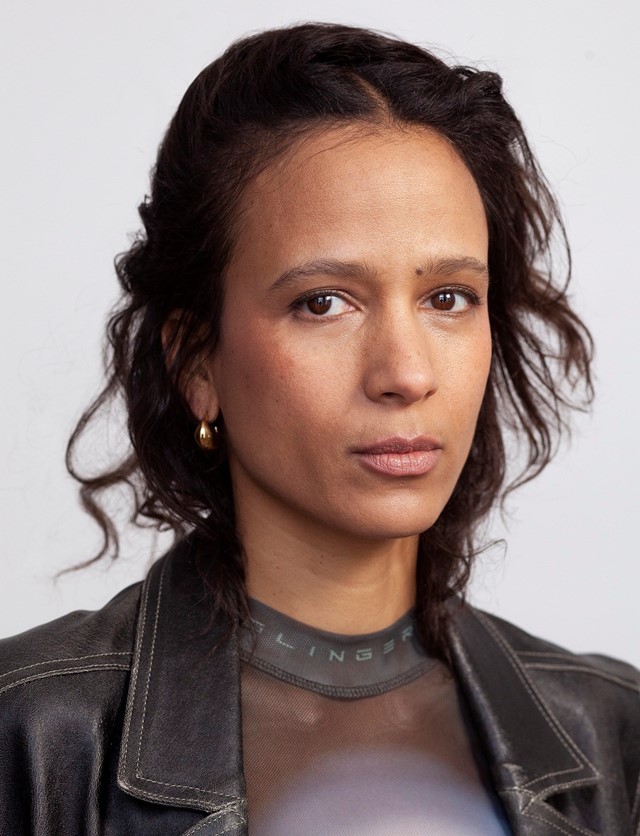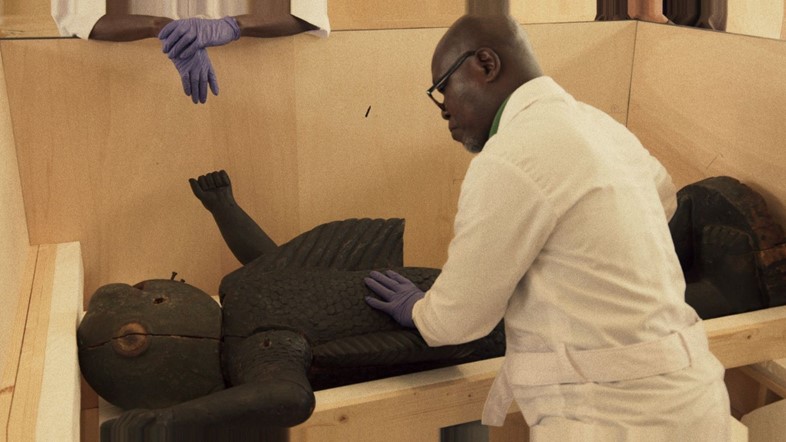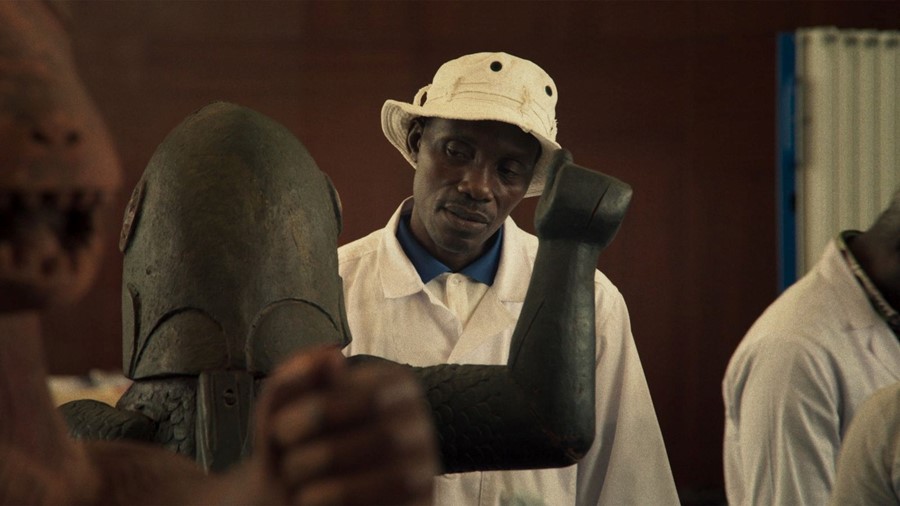Focusing on the repatriation of artefacts to Benin from Paris, Dahomey is “in opposition to the quite mediocre level of debate that we see in the media”
There’s a scene in Mati Diop’s new documentary Dahomey that brilliantly illuminates the ways in which imperial attitudes still make themselves felt in relations between colonisers and their former colonies. The scene in question lasts barely 20 seconds with no dialogue, but it serves as a gotcha moment that must have galvanised Diop’s decision to pursue this story about the repatriation of 26 artefacts to Benin from the Quai Branly in Paris at the order of President Macron. Featuring a crew of Black workers carrying a crate containing one of these large figures, we see one white man appear, who directs, harries and, in one case, pushes the men heaving the box up the steps of the Palais de la Marina, the official residence of the President of the Republic of Benin.
Blink and you’ll miss it, though it tells viewers all they need to know about the imbalance of power that’s still in place even after the return of these cultural treasures looted by French soldiers from the Kingdom of Dahomey in 1892. It’s never entirely clear who this man actually is, though Diop understands him to be a Frenchman from the other side, a key figure in the repatriation of the objects: “It was almost like a comedy scene, it was so incredible,” she says, stifling a laugh. “This one scene embodies the whole dynamic, where even the restitution of this looted African artefact is still being orchestrated by the French. The whole choreography is coming from the French side.”
As a filmmaker, Diop admits she found herself smiling in the editing suite having captured this fandango on film: “I didn't want to put this man in a tricky situation; I didn’t stage it. And I’ve asked myself many times what this man might think when he sees the film. I have no idea if he’ll realise how tricky this situation is or if he’ll feel bad. I think he’s basically doing his job, making sure the containers are moved, but it’s very, very embarrassing.”
If the scene is a microcosm, then the questions being asked in the film are much bigger than the repatriation of these objects. For the record, 26 objects were returned to Benin in 2021 out of a possible 7,000, including large effigies of King Ghezo and King Glele. The latter is anthropomorphised: No.26, sealed in a box, considers what it will be like to return to his homeland after all this time and wonders why in France he’s regarded simply as a number.

These hybrid elements have become a part of Diop’s filmmaking and they work well: the daughter of a Senegalese musician and pop star, Wasis Diop, whose uncle in Dakar – the legendary auteur Djibril Diop Mambéty – inspired her to start making politically agitating films from a young age, Mati Diop already has a Grand Prix from Cannes for 2019’s Atlantics and the Berlin Golden Bear for Dahomey in the trophy cabinet.
She acknowledges that coming from fields which don’t specifically deal with cinema, including music, video, painting and disciplines that she regards as concerning the body (dance, stage, theatre, acting) have all played their part in shaping the way she approaches her work. Was she ever drawn to making music like her father? “Yes, I had a very strong vocational desire to become a musician, a singer and composer,” she reveals. “I still feel like I’m a musician making films, and cinema gives me so much space to explore sound. But I think what was lacking for me in music was the political dimension. It was always very important to me as an artist that my art would be used as a tool for political change. You can get lost in the vastness of music, whereas cinema is extremely structured. It’s about structuring thoughts, structuring a story, whereas music is just too vast.”

Dahomey lands in cinemas in a week where Keir Starmer has been caught on the backfoot over questions about slavery reparations. Across the world, the conversation regarding the effects of empire is growing louder, and Diop’s masterstroke is to film one such conversation between students from the Université d’Abomey-Calavi in Benin, whose feelings about the restitution are mixed, to say the least. Seen through the eyes of these articulate young people, the film edges away from being polemical, seeking to inspire debate instead. Thus far, it’s succeeding.
“I guess it’s kind of in opposition to the quite mediocre level of debate that we see in the media,” she states, “which is becoming more and more binary. I’m not very interested in the debates that are taking place within the art world between the conservators and the directors of museums. So it was really the opportunity to remember that when people in civil society get together, they have a role to play in their own political landscape.”
Dahomey is out in UK cinemas now.
